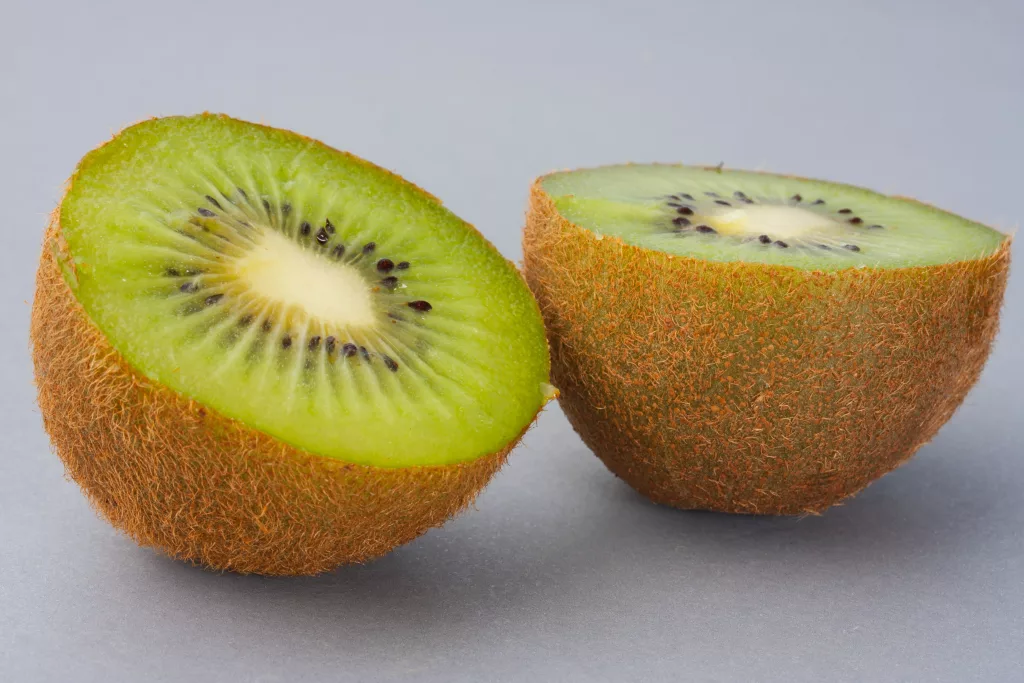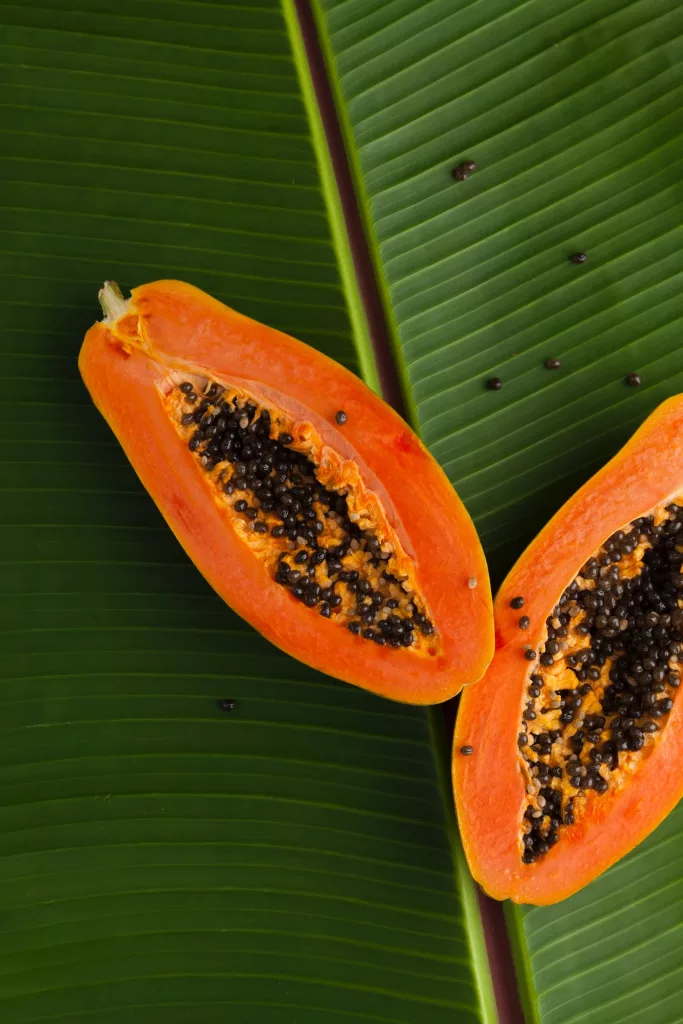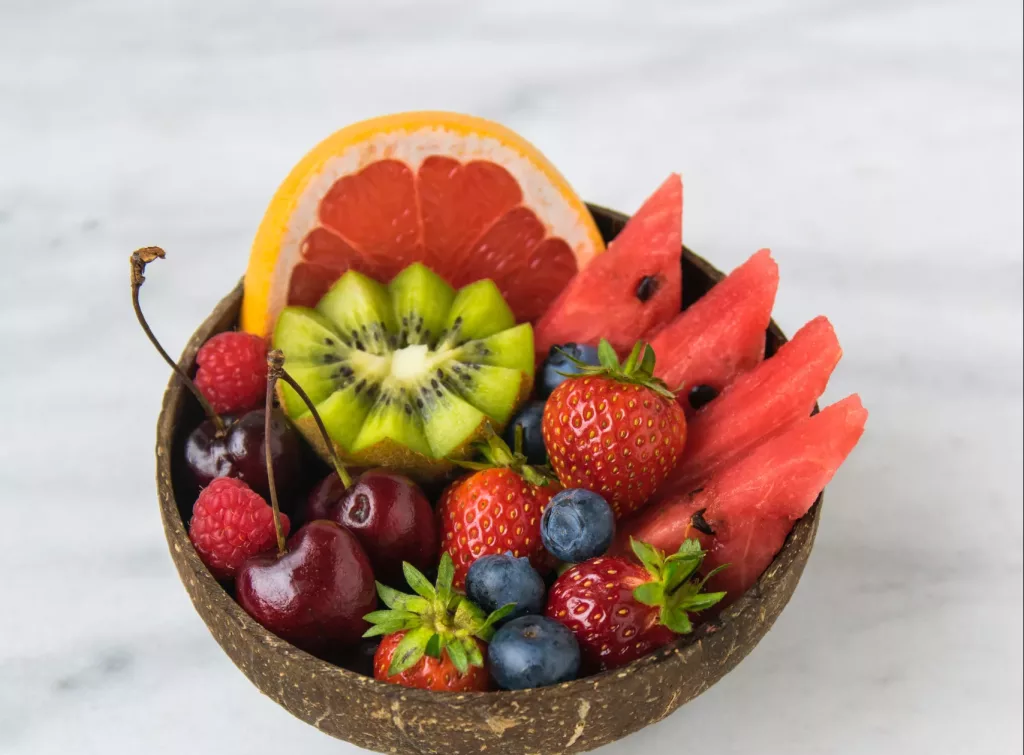Vitamin C, also known as ascorbic acid, is an essential nutrient that plays a crucial role in maintaining our overall health.
This powerful antioxidant is renowned for its ability to boost the immune system, aid in collagen production, and promote healthy skin.
While it is available in supplement form, the best way to ensure you’re getting your daily dose of vitamin C is by incorporating fruits rich in this nutrient into your diet.
In this blog post, we’ll explore five awesome fruits with the highest vitamin C content.
Top Picks: Unveiling the Fruits with the Highest Vitamin C Content
1. Guava
Guava is a tropical fruit that packs a vitamin C punch. One cup of fresh guava contains a whopping 377 milligrams of vitamin C, which is more than four times the recommended daily intake for adults.
This delicious fruit is not only an excellent source of vitamin C but also provides dietary fiber and a range of other essential nutrients.

2. Kiwi
Kiwi, often called a “superfood,” is known for its vibrant green flesh and tiny black seeds. A single kiwi delivers around 71 milligrams of vitamin C, which is more than the daily requirement for most people.
Kiwis are also a good source of dietary fiber, vitamin K, and vitamin E, making them a nutritious addition to your diet.
3. Oranges
Oranges are one of the most popular sources of vitamin C, and for a good reason. One medium-sized orange contains about 70 milligrams of vitamin C.
Additionally, oranges provide a wide range of health benefits, including a good dose of dietary fiber and other vitamins like vitamin A and potassium.
4. Strawberries
Strawberries are not only delicious but also packed with vitamin C. One cup of sliced strawberries provides around 89 milligrams of this essential nutrient.
Strawberries are a versatile fruit that can be enjoyed in various ways, from eating them fresh to adding them to smoothies, salads, or desserts.
5. Papaya
Papaya is another tropical fruit that’s rich in vitamin C. One cup of papaya chunks contains approximately 88 milligrams of vitamin C.
In addition to its vitamin C content, papaya is a good source of vitamin A, vitamin E, and dietary fiber, making it a nutritious choice for those looking to boost their vitamin intake.

Why Vitamin C Matters
Vitamin C is a crucial nutrient for maintaining overall health and well-being. It supports immune function, helps the body absorb iron from plant-based sources, and plays a vital role in collagen production, which is essential for healthy skin, bones, and connective tissues.
Additionally, vitamin C acts as a powerful antioxidant that helps protect cells from damage caused by free radicals.
Incorporating these fruits into your daily diet can help ensure you’re meeting your daily vitamin C needs and reaping the numerous health benefits associated with this nutrient.
Embrace the Vitamin C Superstars for a Healthier, Happier You
While there are many sources of vitamin C available, these five fruits stand out for their exceptional vitamin C content. Including guava, kiwi, oranges, strawberries, and papaya in your diet is a tasty and healthy way to meet your daily vitamin C requirements.
Not only will you be supporting your immune system, but you’ll also be enjoying a wide range of additional health benefits from these delicious fruits.
So, the next time you’re looking for a healthy snack, reach for one of these vitamin C-rich fruits to boost your well-being.
Disclaimer: The following information is provided solely for informational purposes and should not be considered professional advice or a substitute for professional consultation. While every effort has been made to ensure the accuracy and reliability of the information presented, we make no representations or warranties of any kind, express or implied, regarding the completeness, accuracy, reliability, suitability, or availability of the information provided. Any reliance you place on such details is strictly at your own risk.








